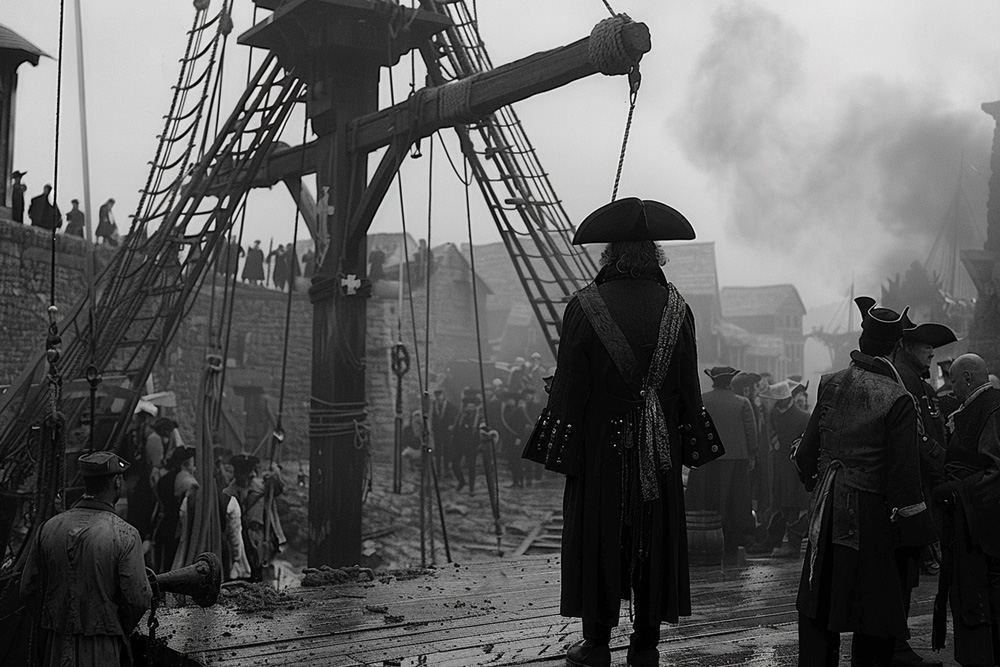KidZone Maritime History
The Capture and Trial of Captain Kidd
Economic Tensions on the High Seas
Captain Kidd's capture and trial in 1699 highlight the complex and often contentious interplay between different economic interests in the Age of Sail. When William Kidd seized the Quedagh Merchant, he unwittingly placed himself at the center of a diplomatic and economic storm. This Armenian ship, though sailing under French passes, was owned by Indian merchants and affiliated with the East India Company, causing an international uproar.
The East India Company was one of the most powerful trading entities of the time, with significant influence over British economic interests in Asia. Established in 1600, it had a monopoly on English trade in the East Indies, including India, and played a crucial role in the expansion of the British Empire. The company's ships carried valuable cargoes of spices, textiles, and other goods, making them prime targets for pirates and privateers alike.
Upon his return to the Caribbean, Kidd's hopes of clearing his name and securing his plunder were dashed. Colonial authorities, influenced by powerful merchants and investors fearing for their commercial interests, saw Kidd as a liability. The influential backers who had once supported Kidd now distanced themselves, prioritizing their reputations and financial stability over their association with the beleaguered privateer. Among these backers was Richard Coote, the Earl of Bellomont, who had been a significant supporter of Kidd’s mission but now faced pressure to demonstrate his commitment to law and order.
Kidd's trial in England was not just a personal downfall but a spectacle reflecting broader economic tensions. The seizure of the Quedagh Merchant angered the East India Company, which wielded considerable influence in British politics and economics. The company demanded justice, as the loss of one of its ships threatened its trading monopoly and the delicate balance of international trade. The trial was therefore a means to appease the powerful East India Company and other merchant interests, demonstrating the government's resolve to protect legitimate commerce and punish those who disrupted it.
The English investors, including Bellomont and other prominent figures, faced immense pressure to dissociate themselves from Kidd. They needed to ensure that their privateering ventures did not tarnish their reputations or jeopardize their economic interests. The trial underscored the fragile balance between privateering and piracy, and the legal gray areas that mariners like Kidd navigated.
Ultimately, Kidd was made an example of, condemned to hang for his alleged crimes. His execution served as a warning to other privateers and pirates, illustrating the precarious nature of their enterprises and the swift turn of fortune that could befall those who straddled the line between legal privateering and outright piracy. The economic interests of powerful groups, particularly the East India Company, triumphed, ensuring the protection of their maritime trade and the suppression of piracy.
Kidd’s downfall was not merely a result of his actions but also the intricate web of economic interests and political pressures that dominated the era. The powerful East India Company, along with influential investors and colonial authorities, leveraged their influence to ensure that Kidd's punishment served their broader goals of maintaining control over international trade and asserting their dominance on the high seas. The trial of Captain Kidd thus remains a poignant example of how individual fates were often determined by the larger economic and political forces at play during the Age of Sail.

Stories: My Name is Captain Kidd